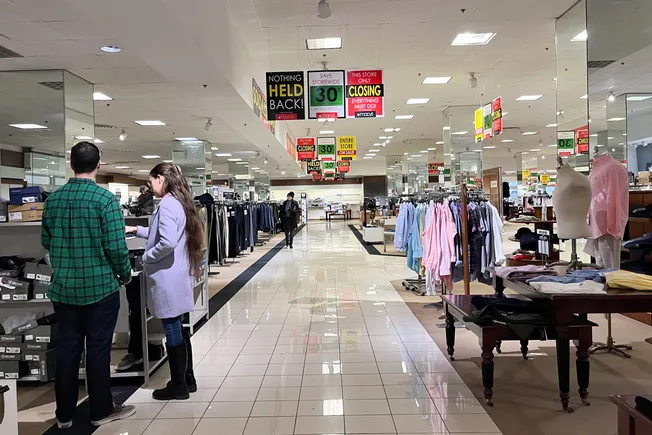Key Takeaways:
- According to a survey by the University of Michigan, consumer sentiment has dropped by 11% this month, with inflation expectations reaching their highest level since 1981. The main cause of concern is the escalating global trade war, which is fueling anxiety among consumers. Joanne Hsu, director of the survey, noted that consumer mood has declined by over 30% since December due to growing worries about the trade war.
- Consumer concerns extend across various demographics, including age, income, education, region, and political affiliation. Expectations for business conditions, personal finances, incomes, inflation, and labor markets have all deteriorated, signaling a risk of recession. The anticipation of higher unemployment in the next 12 months has surged to its highest level since 2009.
Insightful Analysis:
The survey data, collected until April 8, predates President Trump’s announcement of a 90-day pause on reciprocal tariffs with most trading partners. However, tensions between the US and China have continued to escalate, with both countries imposing retaliatory tariffs on each other’s imports. JPMorgan Chase CEO Jamie Dimon cautioned about the potential negative impact of trade conflicts on the US economy, highlighting the need for stable inflation expectations.
Consumer expectations suggest a significant rise in inflation, with forecasts indicating a 6.7% increase in the coming year. Long-term inflation expectations have also risen to 4.4% in April. Federal Reserve Bank President John Williams emphasized the importance of well-anchored inflation expectations for maintaining price stability, particularly amidst economic turbulence.
Given the current trade uncertainties and tariff impacts, Williams projected a rise in inflation to 3.5-4% this year. He also anticipates a slowdown in GDP growth to below 1% due to reduced labor force growth and economic uncertainties. Unemployment rates are expected to climb from 4.2% to 4.5-5% in the near future.
The prevailing uncertainty has led to a decline in consumer and business sentiment, potentially impacting spending decisions. However, economists from Wells Fargo suggest that lower optimism may not necessarily translate to reduced consumer spending. Despite challenges, the US consumer has shown resilience in maintaining spending levels, even in the face of economic uncertainties.

